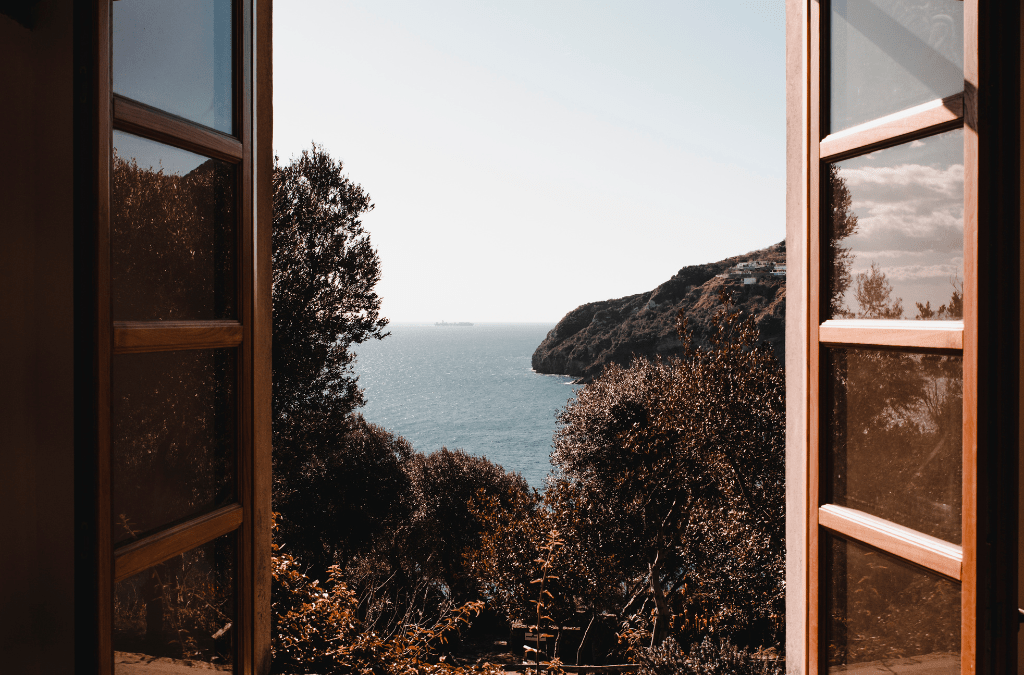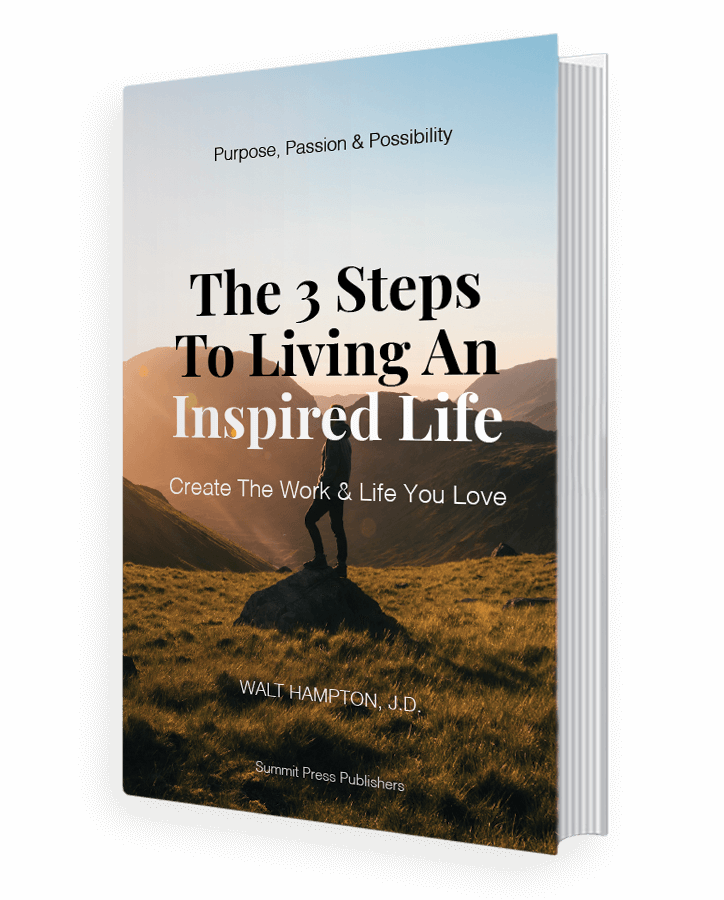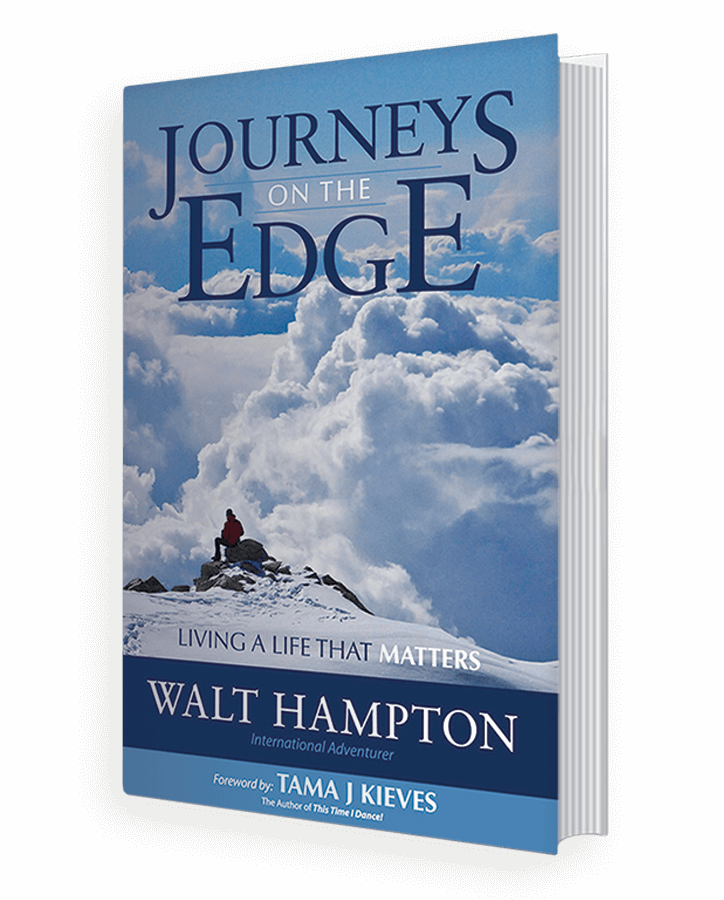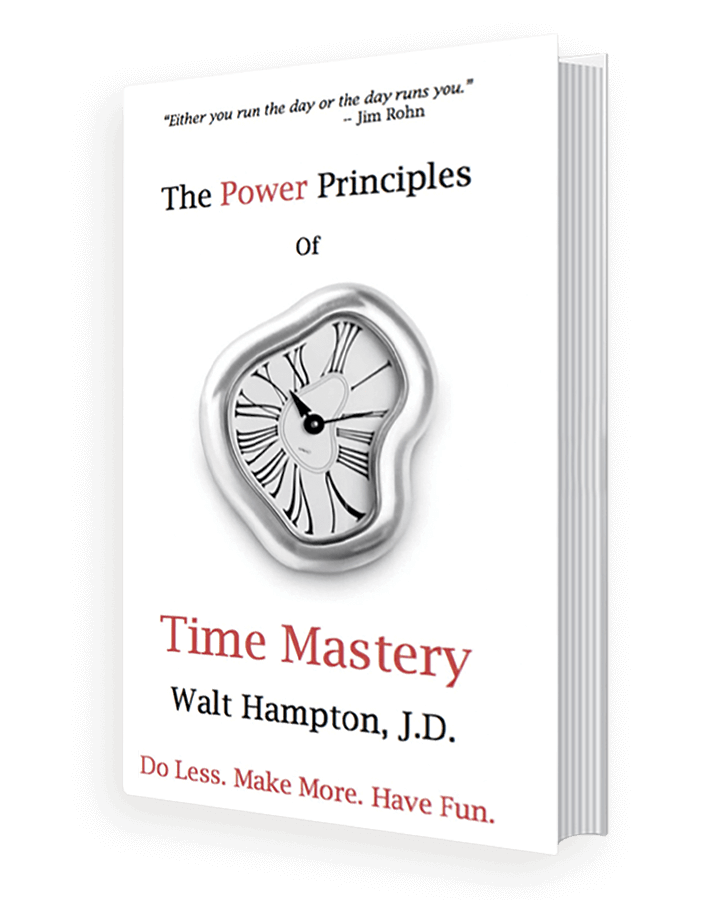Welcome to my blog
Grow & Scale A Business That Will Set You Free

Not Too Late
Nobody grasped you by the shoulder while there was still time. Now the clay of which you were shaped has dried and hardened, and naught in you will ever awaken the sleeping musician, the poet, the astronomer that possibly inhabited you in the beginning.
— Antoine de Saint-Exupery
No quote has troubled me more over the years than this one from Saint-Exupery’s Wind, Sand and Stars. Its clear message is that the passage of time eclipses the deepest yearnings of our hearts.
I think Saint-Exupery is wrong. I think we always yearn. I think our dreams always burn within us. The problem is that we don’t act.
My mentor, Galen Rowell, once wrote, “One of the most shocking realizations of adult life is that most of us are not fulfilling the closest-held dreams of our youth. Instead of pursuing dreams that were once integral parts of our personalities, we end up in one way or another fulfilling someone else’s idea about who and what we should be, usually at the expense of our creative urges.”
It is this realization that discourages, that breeds bitterness. It is this realization that dulls the spirit, that frustrates the soul.
But this realization that we are off course need not harden; it can be harnessed; it can propel us to fulfill what we know to be our heart’s deepest desire. With Wisdom, we can use it to drive us forward.
Time is a thief. But it need not steal those hopes and aspirations that form the core of who we were always meant to be. Our dreams define us. It is our essential Purpose to achieve them.
One of the most common themes I hear after talks I give on holding fast to dreams is this: I’m too old; it’s too late.
That’s bullshit.
Too Old, Too Late is a story told to mask fear, to hide insecurity, to explain resistance, and to excuse inaction.
History is replete with geniuses and giants in business, industry, art, entertainment, and athletics who were not “young” when they started out, whose talents and passions were ignited and came to fruition over the long arc of their lives. Here are but a few examples: Beverly Sills who eked out a singing career until age 40 when she became an operatic star; Colonel Sanders who founded Kentucky Fried Chicken in his 60s; Charles Darwin who toiled with his research and didn’t publish his first book on evolution until age 50; David Oreck who didn’t get started in his now world-famous business until he was 40; Grandma Moses who painted in her 70s; Julia Child who did not appear on television until she was 50; Rodney Dangerfield who only finally made it as a comic in his 40s; Bahadur Sherchan who holds the record as the oldest man to climb Mt. Everest at age 77; and Sister Madonna Budner who competed an Ironman triathlons at age 81.
There will always be other priorities, other responsibilities, and other things that “require” our attention. We are endlessly capable of explaining to ourselves why now is not the “right” time to listen to the still small voice that calls to us in the night, that echoes in the recesses of our hearts.
But what do we tell ourselves at the end of our lives?
How old will you be if you don’t start now?
Our resolves may flag. Our spirits may falter. But the clay of our lives does not harden. It is always ours to form.
Always.
Dreams deferred are dreams denied. Do what you’ve always dreamed of doing.
Do it now.
p.s. I help people at a crossroads figure out what’s next. Email me and we can connect for a call: [email protected]


A Disruptive Discovery
The most disruptive discovery of my adult life: not everyone thinks the way I do.
Not everyone wants what I want.
Not everyone sees the world the way I do.
With rare exception, though, everyone wants to love, and to be loved.
Everyone wants to feel safe and secure.
Everyone wants for a better world.
Just maybe not in the same way that you or I want it.
Which means that we must stay curious.
Especially now.
It’s easy to want to shut down. Turn your back. Lock your door.
It’s easy to want to rant and rage; and hurl insults.
It’s easy to want to condemn, and judge, and name-call.
It’s hard to stay curious.
Really hard.
But here’s the truth: In this last election, a lot of people disagreed with you.
And they are not all bad people.
Just like you, they cast their vote yearning for a better life for themselves and for those they care about.
Why? I don’t know.
But I want to.
The thing I loved most about law school was that we could disagree about fundamental principles and argue with one another all day long like cats and dogs. Then go out for pizza and beer; enjoy one another’s company and laugh; and then do it all again the next day.
We may have believed deeply that our classmates on the other side of the argument were wrong or misinformed or confused. But we never canceled them. We never called them names. We never concluded that they were fundamentally flawed as a people.
Their desire for a better world was my desire.
And we believed that together in our differences – because of our differences – we could make that happen.
I still believe that.
So become an investigator. Ask questions. Listen deeply.
Listen to their hopes and dreams.
Listen to their fears and their worries.
Listen to understand and not to argue.
Listen with the ear of your heart.
The second stanza of the prayer attributed to Saint Francis of Assisi begins: Divine Master, grant that I may not so much seek to be consoled as to console, to be understood as to understand, to be loved as to love.
Love, friends. Just love.
That’s the only way to co-create that world we all long for.


What He Made Me Do
I hated him for it.
For what he made me do.
But it forever changed my life.
We worked together during one of the darkest periods of my life. My work was sucking my soul; my marriage was crumbling; and I was about to become a single dad to my three youngest kids.
I was angry, anxious, sad, depressed.
I needed a therapist.
I found Irv.
One of the most skilled I’d ever met.
Irv would move seamlessly through therapeutic frameworks: cognitive behavioral; psychodynamic; Gestalt. Humanistic therapies. Mindfulness based therapies. Even the Bob Newhart “Just Stop It” therapy.
Whatever worked, Irv used it.
As he was in the later years of his practice, the common framework of a 45 minute hour was a rather fluid one for Irv. Sometimes it might be 45 minutes. Sometimes two hours.
Whatever it took to get the job done.
I’d cry; and sob; and complain; and whine; and yell; and rant.
Irv would hold the space with such compassion and love.
And, as the energies would settle, there would always come that moment.
That moment when Irv would hand me the yellow legal pad and #2 pencil that he kept next to his wingback chair.
And ask me the question, “So what are you going to do now?”
“Write it down,” he’d say.
Because this therapy thing wasn’t about vast and half vast ideas; it wasn’t about bellowing into an empty echo chamber; it wasn’t about navel-gazing.
It wasn’t even about self-understanding per se.
It was about agency. Self-efficacy.
Creating a future. For myself, and for those I loved.
This moment in time that we’re experiencing together is especially challenging.
There’s a lot to cry and sob and complain about.
We need to whine and yell and rant.
To experience the anxiety and the fear and the sadness.
To feel all the feels.
And then…
To ask the question: What will I do now?
Because, there’s a lot to do right now.
Yes. It all feels daunting. Overwhelming even.
You may have no clue where to begin.
Begin wherever your heart draws you to begin.
That cause that you feel passionate about: climate change; immigration; systemic injustice; poverty; affordable housing; trans phobia; racism; food insecurity.
A letter to the editor; an article on Substack; a meeting; a rally; a political action group; an email to your congress person.
Become an activist. Volunteer at a shelter. Raise money.
“We can’t all do great things,” Mother Teresa once said. “But we can all do small things with great love.”
Because whether small or great, action is the antidote to despair and helplessness.
And the key to a brighter future.
Irv is long gone. But he still whispers in my ear.
As I do here in yours.
“So what will you do now?”


Into This Darkness
To everything there is a season, and a time to every purpose under the heaven: A time to be born, and a time to die; a time to plant, and a time to pluck up that which is planted; A time to kill, and a time to heal; a time to break down, and a time to build up; A time to weep, and a time to laugh; a time to mourn, and a time to dance; A time to cast away stones, and a time to gather stones together; a time to embrace, and a time to refrain from embracing; A time to get, and a time to lose; a time to keep, and a time to cast away; A time to rend, and a time to sew; a time to keep silence, and a time to speak; A time to love, and a time to hate; a time of war, and a time of peace.
— Ecclesiastes 3:1-8
We’ve turned the clocks back.
The shadows here in New England begin to fall by mid-afternoon.
I’ll rail against it. 

Some find the dark cozy and embracing. They relish the long evenings in front of the fire. They embrace the dark.
Me not so much.
I love the Alaska Range in the summer: the long endless days and the midnight sun. I wouldn’t last long there in the winter.
Of course, many folks have taken care of this by moving to places like Southern California, or Belize. And there are many more who embrace the changing seasons with greater equanimity than I.
But the seasons of life change can be another matter altogether.
Most all of us get used to our routines.
Constancy is safe. Secure.
We like predictability.
Anything that disrupts the status quo is, well, disruptive.
We fight change. I do. Yet change is really the only constant. It is the rhythm of things. High tide and low; ’til death do us part, or sooner; daytime and night; in sickness and in health; drought and flood; republicans and democrats; in good times and in bad; generatively and the dark night of the soul.
The legendary Jim Rohn taught so eloquently on the seasons of life: The seasons always come, Rohn said. “You cannot change the seasons but you can change yourself.”
Winters always come. And there are all kinds of them, Rohn said. “There are economic winters, when the financial wolves are at the door; there are physical winters, when our health is shot; there are personal winters when our heart is smashed to pieces.”
Use winter to get stronger, wiser, better. Get ready for the Spring, Rohn said. It always follows winter.
“Opportunity follows difficulty.” Take advantage of the Spring. Till the earth. Plant.
In the Summer, nourish and protect. “Every garden must be defended in the summer,” Rohn taught. The garden of values – social, political, marital commercial- the garden of ideas, the garden of all that is good. Be on watch over your garden in the summer.
Reap what you have sown in the fall. Take responsibility for what you did not sow, for what you did not protect. But celebrate the harvest. “Learn to welcome the fall without apology or complaint,” Rohn said.
Embrace the seasons of our lives. Know them. Use them.
Why do we fight so what is so?
To be with change, to be in its flow; to experience the shifting sands with open hands and open hearts. To have the courage to accept and say: “and this too.” Cherish this challenge. It is all we really have.
The seeds of new life blow on the cold winds of November. Winter will come. But so will Spring. It is the rhythm of things.
To live fully, deeply into each season of our lives: this is what we are called to do.
Every year we have been witness to it: how the world descends
into a rich mash, in order that it may resume. And therefore who would cry out
to the petals on the ground to stay, knowing as we must, how the vivacity of what was is married
to the vitality of what will be? I don’t say it’s easy, but what else will do
if the love one claims to have for the world be true? So let us go on
though the sun be swinging east, and the ponds be cold and black and the sweets of the year be doomed.
— Mary Oliver
________________________________________________
Want some support through a season of change? Let’s talk. Email me: [email protected]
And stop by for a visit at: https://summit-success.com/

I Want To Notice More
I want to notice more.
I want to notice everything around me more.
These are the words that Robin Wright’s character, Edee, uses in the movie Land, Wright’s extraordinary directorial debut.
Edee has suffered a devastating loss and goes to live in a remote mountain cabin to try to reclaim a life.
Her goal: To notice more.
Mine too.
I’m a productivity addict.
I plan everything.
I move at warp speed.
Not a moment wasted.
Meditation: Check.
Journaling: Check.
Aerobics: Check.
Core workout: Check.
Client work: Check.
Marketing: Check.
Date night: Check.
Noticing: Hmm. Not so much.
Noticing the oncoming dawn; the dew in the grass; the sparkles in the snow; the air in my lungs as I run across the land; the smell of the thawing earth; the texture of my food; the lilt in my daughter’s voice when she calls me in the morning; the stars in the sky; the moon on the ocean; the light in my lover’s hair.
All so easy to miss. To blow by.
Because…
Life flies by in a blur.
When you let it.
Unless you stop it.
Intentionally stop it.
And that’s hard. So hard.
When we were in the Himalayas for 3 weeks, we were off the grid. Completely off the grid.
It took herculean effort to pull out of the vortex.
To step away.
From the constant input.
The demands. The responsibilities.
The emails, text messages, notifications, and alerts.
The onslaught of the news.
The dopamine of input.
The siren song of social media.
All of it.
Hardwired. Habitual.
All of it.
Draining.
Draining my energy reserves.
Slowly chipping away at my wellbeing.
Slowly inuring me to real.
Until I saw that I needed to stop.
And so I did.
It wasn’t easy.
I love my work.
I cherish my connections with friends and family.
And… I knew that I needed to rest.
Recreate.
Heal.
So that I wouldn’t crash and burn.
So that I can continue to be ever more present.
So that I can continue to do the work I am called to do.
The Himalayas are the grandest mountain range on earth. Of staggering scale; and breathtaking beauty.
They have the capacity to stop you in your tracks.
Yet, of foreigner travelers, a Tibetan monk once said, “Many people come, looking, looking. No good. Some people come, see. Good.”
For a few precious weeks, I slowed down.
I saw.
I really saw.
Life is so fleeting. I don’t want to miss any of it.
I want to keep seeing.
I want to notice more.
You?

DOWNLOAD your FREE BOOK!

DOWNLOAD Your Free E-Book NOW! Click Below And Get Going!
Click below for your copy of Journeys!

You’ll Get A Signed Copy!
Click on the button for your copy of my brand new book “The power principles of time mastery!”

You’ll Get A Signed Copy!
Categories
Adventure
Finding The Way
Journeys
Leadership
Success
Ultra Training
